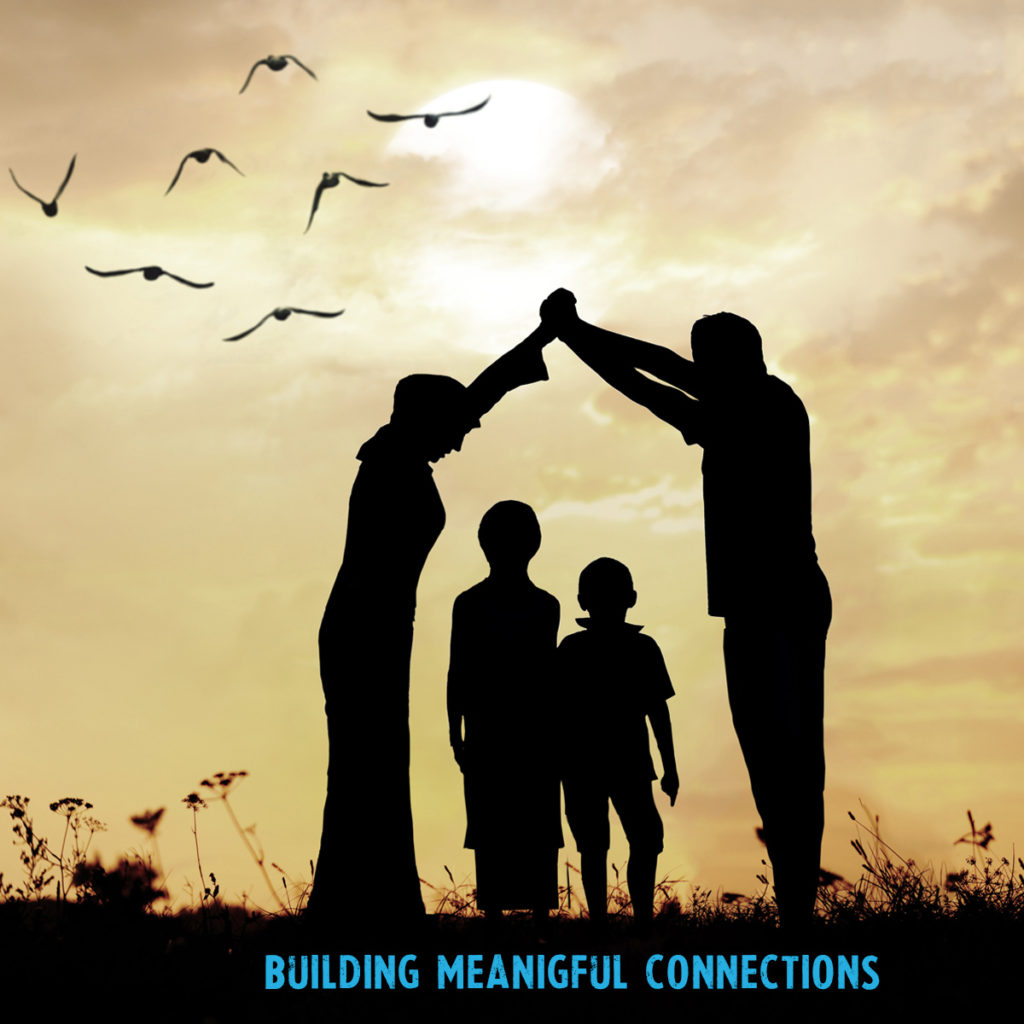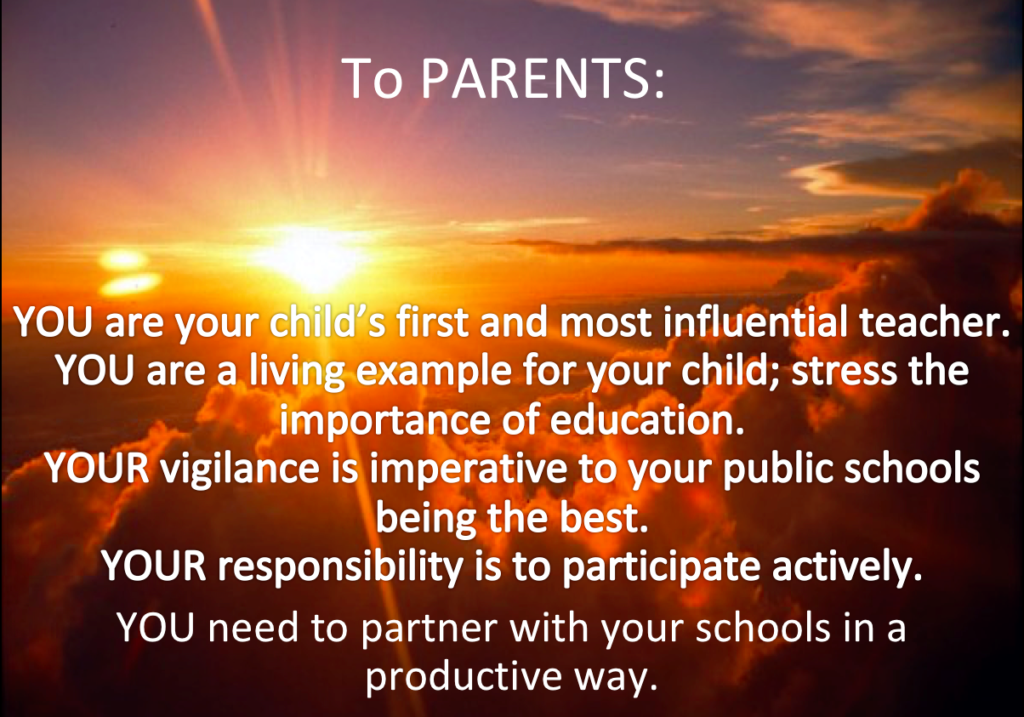Parents — the most influential people in a students’ life — are too often the least well-informed about the need to partner with schools in a productive way.

Parents & Kids: Building Meaningful Connections.
Life itself is a risk-taking adventure and with young children and adolescents, it is even more so.
How many times have you heard of “good parents” who lost their child to drug addiction or the ultimate of losses, suicide? No one is totally immune. The best we can do is reduce the risks as much as possible, in every way possible. And for that, we do need partners.
Schools continue to be an institution whose role in many students’ lives is second only to their parents. But have we done all we can to foster parental partnerships with schools? Are we even consistently informing parents as to what their constantly changing role in education is?
In 1983, the National Commission on Excellence in Education came out with this statement:
To Parents from a Nation at Risk (p.35)
“You have the right to demand for your children the best our schools and colleges can provide. Your vigilance and your refusal to be satisfied with less than the best are the imperative first step. But your right to a proper education for your children carries a double responsibility. As surely as you are your child’s first and most influential teacher, your child’s ideas about education and its significance begin with you. You must be a living example of what you expect your children to honor and to emulate. Moreover, you bear a responsibility to participate actively in your child’s education.”
This presidential commission on education studied secondary schools (middle, junior, and high schools) and made recommendations for this often overlooked and misunderstood age group. And they had much more to say to secondary school parents:
“You should encourage more diligent study:
► monitor your child’s study;
► encourage good study habits;
► encourage your child to take more demanding rather than less demanding courses;
► nurture your child’s curiosity, creativity, and confidence;
► be an active participant in the work of the schools;
► exhibit a commitment to continued learning in your own life;
► help your children understand that excellence in education cannot be achieved without intellectual and moral integrity coupled with hard work and commitment.”
Clearly understanding our roles and responsibilities for every “stage” of our children’s education is a good first step but only if the information is correct.
Too often parents hear that teenagers don’t want them “involved” at this age, Not true. Involvement in their lives will take on different forms, yes, and partnerships are especially helpful in staying involved albeit at a bit more of a distance. And this is where the larger community, and parent partnerships, comes into play.
Parents must of course fulfill their responsibility to their own children first. But anyone can watch out for and help others. It isn’t government that is needed to accomplish this; it is people building a sense of community. At a time when society desperately needs to foster well-educated, well-informed citizens, we all need to look at what we can do to create the conditions for personal partnerships to develop and grow.
Little acts can have a big impact.
We won’t improve education without educating each other. When you read or hear something that you believe is valuable, find a place to share it; it will surely have value for others. If your school administrators are not receptive to your views, refuse to allow those barriers to stand in your way. Find another way to be heard. It is, after all, your vigilance and your willingness to act that is the “imperative first step” in the improvement of YOUR schools. The principles of partnership building are nothing new or excessively complicated. Partnerships develop as people begin to understand their common concerns. Conversations about concerns foster respect for each other’s opinions and allows a forum for expression of our expectations — of each other. Partnerships are a two-way street.
The principles of partnership building are nothing new or excessively complicated. Partnerships develop as people begin to understand their common concerns. Conversations about concerns foster respect for each other’s opinions and allows a forum for expression of our expectations — of each other. Partnerships are a two-way street.
It takes personal relationships to form partnerships.
Invest your time where it is most important and will decrease the risks associated with the growing incivility of our society. Build partnerships in your child’s school and community.
(Note: This blog was first posted on April 3, 2013 under the title “Every Child at Risk.”)

Spot on message, Vicki! Our Bovill Preshool teachers were trained in Parents As Teachers and held regular Family Nights. So very beneficial that home to school connection. Probably helped the preschool to continue when the grant money went away.
That is great to hear about the Parents as Teachers program success in your state! We had that in place through the Cooperative Extension System here in Idaho until Governor Otter cut funding on it during the Great Recession.
My fear now is that it comes back in a privatized form using Idaho’s “Pay for Success” law. That feeds the data collection system and uses resources to prove the “program” works when we already know the concept is solid. Parents matter. They are the ones schools need to partner with, not venture capitalists.
Good to know you are out there spreading the word that there is #aBetterWay to improve schools. Thanks, Paul. 😉